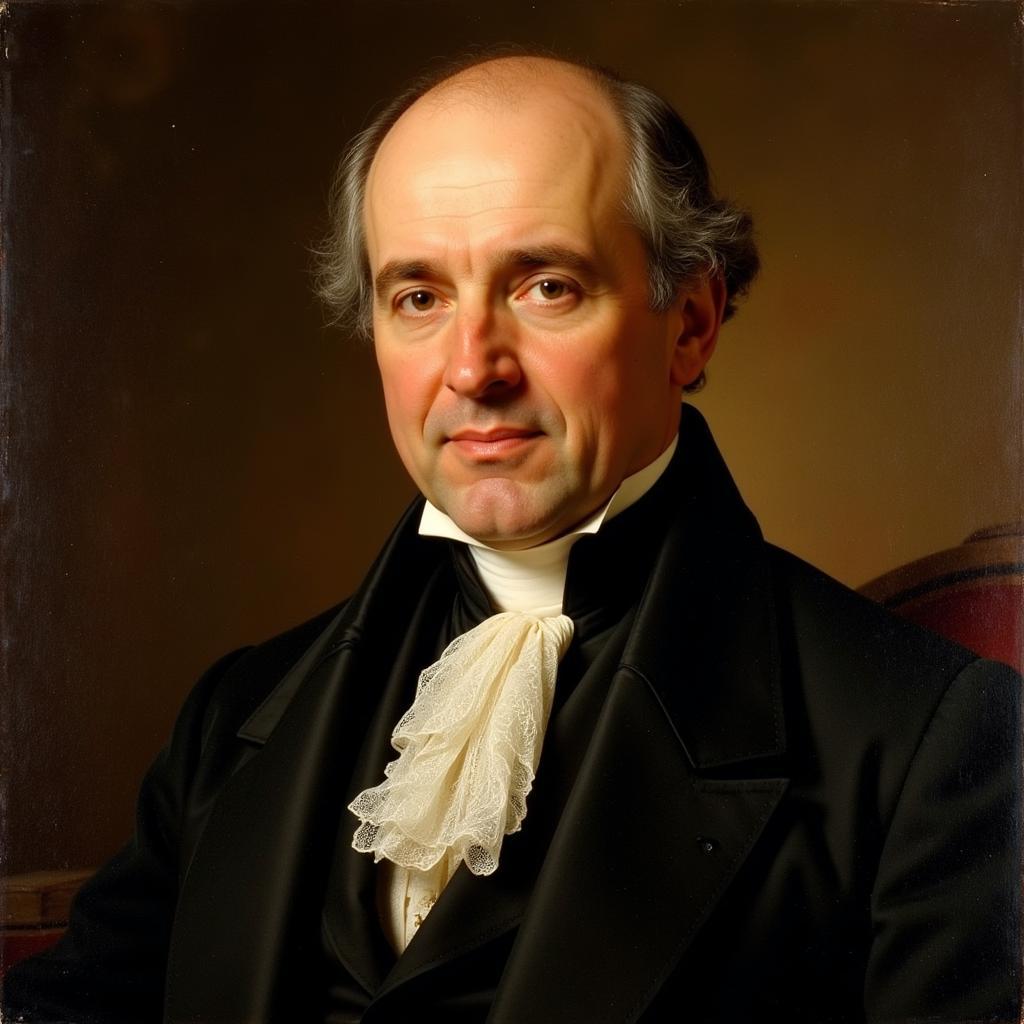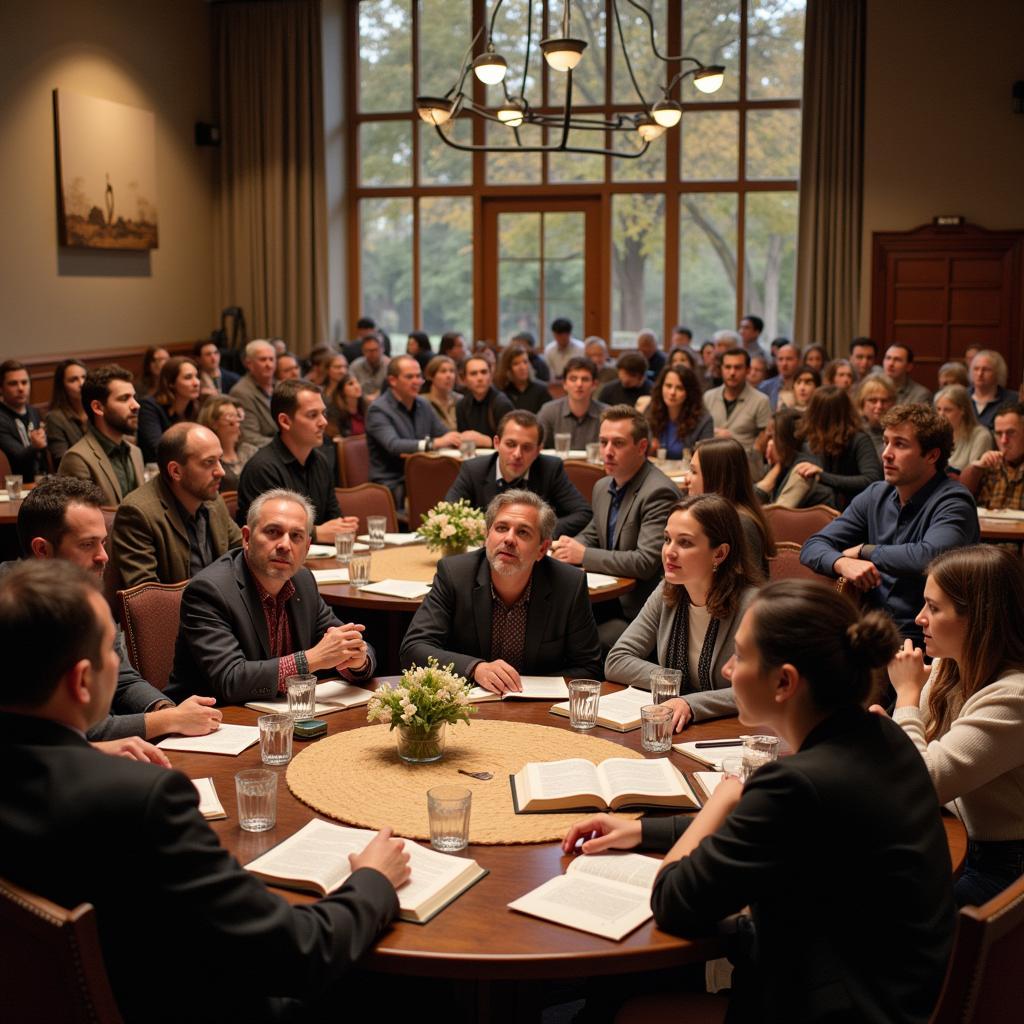The Dean Burgon Society is a fascinating topic that explores the complexities of faith, tradition, and textual criticism. This article delves into the society’s history, its core beliefs, and its impact on biblical scholarship. We will examine its relevance in the modern world and the ongoing discussions surrounding its viewpoints.
Exploring the Origins of the Dean Burgon Society
The society takes its name from John William Burgon, a 19th-century Dean of Chichester Cathedral known for his staunch defense of the traditional text of the New Testament. He vehemently opposed the emerging field of textual criticism, which sought to reconstruct the original text of the Bible by comparing different manuscripts. Burgon believed that the Textus Receptus, the Greek text underlying the King James Version and other traditional translations, was essentially the divinely preserved and authoritative text. His arguments, while passionate, were often controversial and dismissed by many contemporary scholars. The Dean Burgon Society, formed years later, carries on his legacy, continuing to advocate for the Textus Receptus and challenging modern textual criticism.
The society’s formation was a direct response to what its founders saw as the erosion of traditional biblical scholarship. They felt that modern textual criticism was undermining the authority of the Bible.
Core Beliefs and Principles of the Dean Burgon Society
Central to the Dean Burgon Society’s beliefs is the inerrancy of the Textus Receptus. They argue that this text, which formed the basis of the Reformation and influenced countless generations of Christians, holds a unique position of authority. This belief often leads them to challenge the findings of modern textual criticism, which often favors manuscripts that differ from the Textus Receptus.
Another key tenet of the Dean Burgon Society is the importance of tradition. They believe that the historical acceptance of the Textus Receptus carries significant weight and should not be easily dismissed. This respect for tradition is intertwined with their understanding of biblical authority and the role of the church in preserving the scriptures.
 Portrait of Dean John William Burgon
Portrait of Dean John William Burgon
The Dean Burgon Society believes that understanding the context of the Textus Receptus is crucial. This context includes the historical use of the text, the theological implications of its readings, and the impact it has had on Christian thought throughout the centuries.
The Dean Burgon Society’s Impact on Biblical Scholarship
While the Dean Burgon Society holds a minority position within the field of biblical scholarship, it has played a role in keeping the debate alive about the nature of biblical authority and the process of textual criticism. Their persistent questioning of mainstream scholarly consensus has forced scholars to refine their arguments and engage with alternative perspectives.
“The Dean Burgon Society’s contributions, though sometimes controversial, are valuable in that they remind us to constantly re-evaluate our assumptions and methods,” says Dr. Amelia Carter, a professor of Religious Studies at the University of Oxford.
 An old Bible open to the Gospel of John
An old Bible open to the Gospel of John
Dean Burgon Society and the Modern World
In the digital age, with the proliferation of different Bible translations and access to vast amounts of scholarly information, the Dean Burgon Society’s perspective remains relevant. Their emphasis on textual integrity and the importance of understanding the historical context of the Bible resonates with some who feel overwhelmed by the complexities of modern biblical scholarship.
“The society provides a framework for understanding the Bible within a historical and theological tradition,” notes Rev. Michael Davies, a theologian and author.
 A group of people discussing biblical texts
A group of people discussing biblical texts
Conclusion
The Dean Burgon Society, named after Dean John William Burgon, continues to champion the Textus Receptus and challenge modern textual criticism. Their unwavering commitment to tradition and the inerrancy of the Textus Receptus offers a unique perspective within biblical scholarship, prompting ongoing dialogue about the complexities of faith and textual interpretation. Their work provides a valuable contribution to the ongoing conversation surrounding biblical authority in the Dean Burgon Society.
FAQ
- What is the Textus Receptus?
- Who was Dean John William Burgon?
- What are the main beliefs of the Dean Burgon Society?
- How does the Dean Burgon Society view modern textual criticism?
- What is the significance of the Dean Burgon Society in contemporary biblical studies?
- What resources does the Dean Burgon Society offer?
- How can I learn more about the Dean Burgon Society’s perspective?
Common Scenarios and Questions
-
Scenario: A student researching different views on biblical textual criticism.
-
Question: Where can I find resources that support the Textus Receptus?
-
Scenario: A pastor seeking to understand the historical context of the King James Version.
-
Question: What role did the Textus Receptus play in the development of the King James Version?
Further Exploration
Explore other related articles on our website about biblical translation, textual criticism, and the history of the Bible.
Call to Action
For any assistance or inquiries, please contact us: Phone: 02043854663, Email: [email protected], or visit our address: Khu 34, Bac Giang, 260000, Vietnam. Our customer service team is available 24/7.